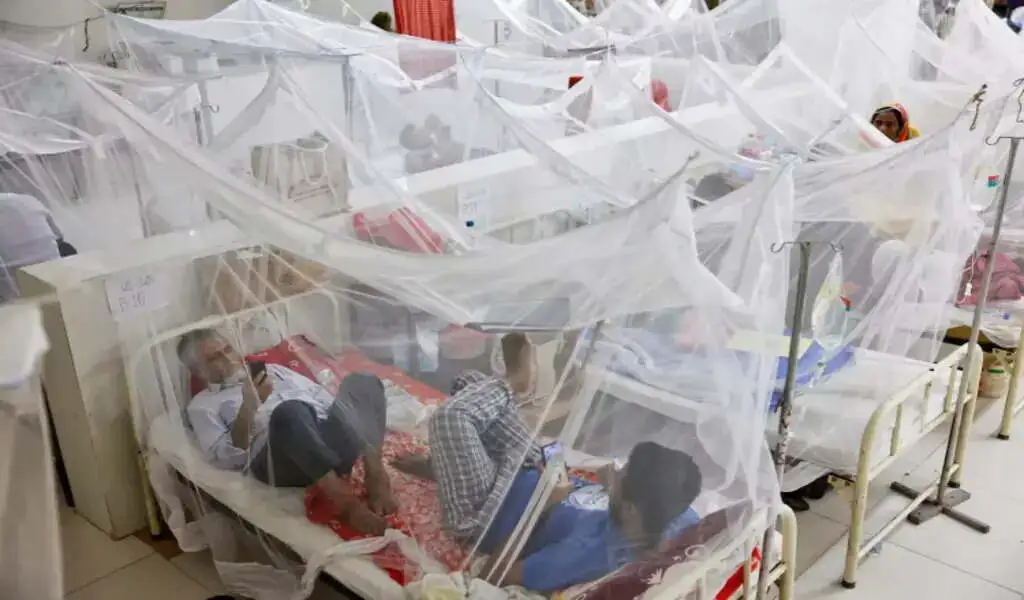(CTN News) – There is a dengue fever outbreak in Bangladesh that is one of the worst in history. It is estimated that nearly 600 people have died from mosquito-borne tropical diseases this year, and the health-care system in the country is at risk of becoming overwhelmed as over 2,000 new cases are reported every day.
It is a well-known fact that Dengue fever, a potentially deadly viral disease transmitted by Aedes mosquitoes which breed in freshwater pools and in rain drains, is an annual concern during the monsoon season between July and September, when thousands of Bangladeshis contract the disease.
In the last two decades, the incidence of dengue fever has increased dramatically all over the world. A previous dengue outbreak occurred in 2019, with over 100,000 cases being reported across the country, which was the worst outbreak on record.
As of Friday, the Bangladeshi health authorities have recorded 593 dengue deaths and 123,000 hospitalizations as a result of dengue fever in 2023.
During the month of August alone, more than half of the patients with dengue have been admitted to hospitals. It appears that there is no slowing down in the rate of infection, which suggests the peak of the outbreak is still a long way off.
There will be more infections and deaths caused by a prolonged outbreak of dengue if there is a prolonged outbreak. As a result of this, it is putting the health system and the health workers under increasing pressure, as it is becoming increasingly difficult to handle the continuous increase in patients.
The local government workers who are in charge of mosquito control are also overburdened, according to Dr. M. Mushtaq Hussain, senior adviser to Bangladesh’s Institute of Epidemiology, Disease Control and Research.
In the event that the rains persist, the dengue outbreak is expected to continue with the same devastating outlook for September,” he added.
The World Health Organization (WHO) warned in January that dengue is the world’s fastest-spreading tropical disease, and it poses a “pandemic-level threat.” In Bangladesh, medical facilities were still far from prepared to handle such a situation.
I believe that our health systems are not sufficiently equipped to deal with a situation like a dengue outbreak when it becomes an epidemic, Hussain said.
In our urban areas, there is a lack of three-tier health facilities that are available to our residents. As a result of this, not all Dengue Fever patients are able to get treatment for their disease.
The patients who have been hospitalized did not receive treatment in the early stages and they became critical when they got admitted to the hospital as a result of not receiving early treatment.
There is no doubt that the increase in Dengue Fever cases is a result of climate change, but in Bangladesh it is also a sign that the spread of mosquitoes has not been controlled.
SEE ALSO:
What’s The Next COVID Vaccine And Who Should Get It?






